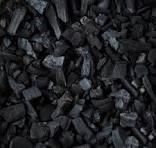
Charcoal production and trade are mostly managed under the national government forestry legislation, especially the Charcoal Rules of 2009, as echoed by 81% of the respondents during the governance and institutional assessment survey. However, with devolution in 2013, county governments have developed strategies to guide and control this value chain. Likewise, while the Kitui County had enacted the Kitui County Charcoal Management Act in 2014, implementation of the act has been challenging. One such challenge is the overlapping mandate between agencies, with many institutions perceived to be controlling, guiding and regulating wood fuel value chains. Illegal charcoal production and sale is thriving in Kitui County despite an existing ban to safeguard the county’s dwindling forest cover that is a paltry 7% below the national target of 10%.This article will explore the various aspects of charcoal production in Kitui, Kenya, including its economic significance, environmental challenges, and potential solutions.
Firstly, charcoal production in Kitui benefits the local economy. It provides jobs for many locals, giving them a source of income to support their families. Charcoal production is labor-intensive and requires various tasks such as cutting down trees, transporting logs, and carbonizing the wood. These activities create employment opportunities for many individuals in the region, helping to alleviate poverty and improve livelihoods. The thriving charcoal industry also attracts traders from neighboring counties, boosting local commerce and stimulating economic growth.

Charcoal has become a highly sought-after fuel source in Kitui, Kenya. This has led to the deforestation of vast areas of the region and has had a detrimental impact on the environment. Despite efforts to promote sustainable alternatives, charcoal remains the primary source of cooking fuel for many households in Kitui. This article will explore the reasons behind the high demand for charcoal, the consequences of its production, and potential solutions to the problem.
One of the main reasons for the popularity of charcoal in Kitui is its affordability and availability. With a poverty rate of over 50%, many households cannot afford other forms of energy such as electricity or gas. Additionally, Kitui is rich in forest resources, making it easier for local communities to engage in the production of charcoal. This has created a lucrative market for charcoal producers who can sell their product at a relatively low price.
However, the charcoal industry in Kitui is not without its challenges. One major concern is deforestation. The production of charcoal requires a large number of trees to be cut down, leading to the destruction of natural habitats and loss of biodiversity. Deforestation also increases the risk of soil erosion and degradation, further exacerbating environmental problems. Additionally, the carbon emissions resulting from the burning of charcoal are a significant contributor to climate change, leading to long-term environmental consequences.
To address these challenges, various initiatives have been implemented in Kitui. One such initiative is sustainable charcoal production. This approach involves using environmentally-friendly methods to produce charcoal while minimizing the impact on the environment. Sustainable charcoal production prioritizes the use of renewable energy sources, such as crop residues and waste biomass, rather than cutting down trees. It also promotes efficient charcoal making techniques that reduce carbon emissions and increase energy efficiency. By adopting sustainable practices, the charcoal industry in Kitui can mitigate its negative environmental impact and ensure long-term sustainability.
Another solution to the environmental challenges posed by charcoal production is the promotion of alternative cooking fuels. Many households in Kitui rely heavily on charcoal for cooking purposes. However, alternative fuels such as liquefied petroleum gas (LPG), biogas, or solar energy can be viable alternatives to charcoal. Promoting the use of these alternative fuels can help reduce the demand for charcoal, thus decreasing the rate of deforestation and carbon emissions. In addition, these cleaner cooking fuels are more efficient and healthier, as they produce less smoke and reduce indoor air pollution, which is a major health hazard in many households.

Furthermore, community involvement and education are crucial in addressing the sustainability of charcoal production in Kitui. By raising awareness about the environmental impact of charcoal production and promoting sustainable practices, local communities can actively participate in conserving their natural resources. Education and training programs can help charcoal producers adopt more sustainable techniques, such as tree planting, agroforestry, and efficient kiln designs. Additionally, involving local communities in decision-making processes and providing economic incentives for sustainable practices can further encourage their engagement in preserving their environment.
In conclusion, charcoal production plays a crucial role in the economy of Kitui, Kenya. However, there are significant environmental challenges associated with this industry, including deforestation and carbon emissions. To ensure the sustainability of charcoal production in Kitui, it is imperative to adopt sustainable practices, promote alternative cooking fuels, and involve local communities in conservation efforts. With the right strategies and collective efforts, the charcoal industry in Kitui can thrive while preserving the environment for future generations.




